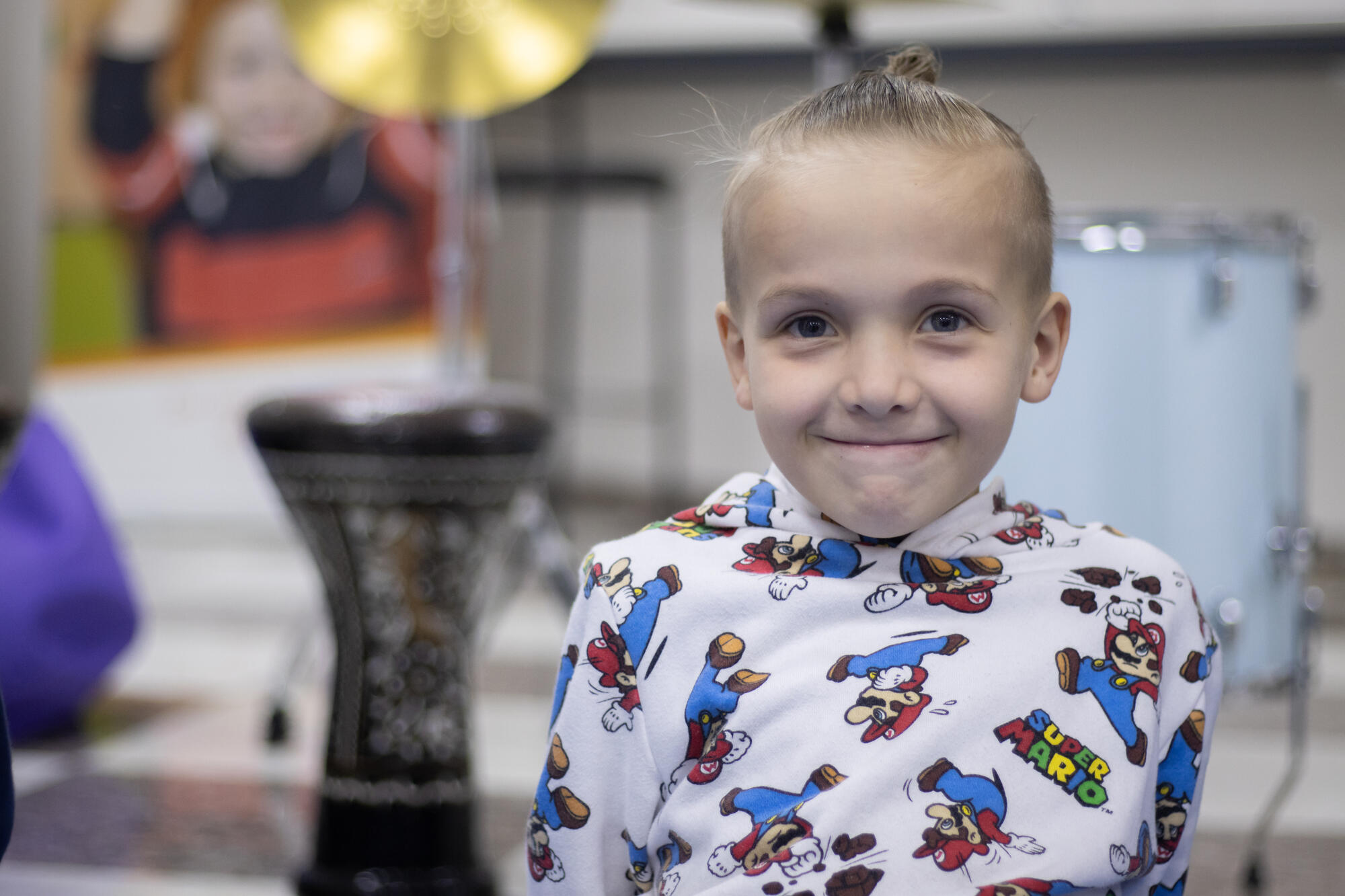Estimated read time: 6 minutes
This Mental Health Awareness Month Help Us Pass Critical Mental Health Legislation
When the war started in Ukraine two years ago, six-year-old Yehor and his pregnant mother Marina made the difficult decision to leave their home and seek refuge in neighboring Georgia. Weeks later Yehor’s grandmother Svitlana joined them for the birth of his little sister. After arriving in Georgia, Svitlana quickly noticed her grandson Yehor had become quiet and reserved since leaving home. She sensed that he was having difficulty adjusting to their new life and dedicated herself to support Yehor’s education and development.
After learning that World Vision was organizing music and dance classes for refugee children nearby, Svitlana arranged for Yehor to attend. Through these activities, World Vision offers psychosocial support for refugees that aim to alleviate the stress of war and enhance children’s mental well-being. “Children have fun and feel happy during the music and dance activities,” said Tamar, a World Vision music therapist. “These sessions assist children who are sad, stressed and scared to advance their capabilities and help solve their problems gradually without extra pressure.”

Yehor has found healing in music and interacting with other children who have now become his friends. “I like the music session because it makes me happy,” Yehor said. “When I play on different instruments, I feel the rhythm. I especially like playing with the drums. I also want to learn to play the violin—this is my dream. But my main dream is to live in a world where no one fights and there is no evil but only kindness.”
After attending the World Vision sessions, Svitlana has also noticed positive changes in her grandson. “He became more open, started communicating, and playing with other children. Now he is kinder, more sociable, and cheerful,” his grandmother said.
Around the world, as many as 1 in 100 people are displaced from their home like Yehor and his family.
There are many other stories like Yehor’s; children facing traumatic events in their home country and finding relief and healing through psychosocial support activities in World Vision’s child-friendly spaces. Across the globe, conflict, natural disasters, and man-made disasters lead to children witnessing traumatic events, and they often forced to leave their home and even their countries. But trauma doesn’t just come from major disasters. Violence, neglect, and many other effects of poverty, can also lead to mental health struggles. With May being World Mental Health Awareness month, our Advocate Community is elevating the needs of the world’s most vulnerable children and their mental health.
Responding to children’s mental health needs through the MINDs Act
Providing mental health services as close to the date of the traumatic events as possible is critical to helping these children heal. World Vision is responding with practical, cost-effective mental health programs for children throughout the places we work. We’re also encouraging the U.S. government to follow suit in its humanitarian and disaster assistance programs.
One big step toward understanding and meeting the mental health needs of children in disaster settings is the Mental Health in International Development and Humanitarian Settings Act (MINDs). The bipartisan bill is currently being led by Rep. Susan Wild (D-PA) and Rep. Joe Wilson (R-SC) in the House and Sen. Bob Casey (D-PA) in the Senate.
So how would this bill help?
The MINDs Act includes positive provisions to make mental health support more accessible and streamlined to reach the maximum number of children and their caregivers.
In short, the MINDs act will:
- Make the existing position of USAID Coordinator for Mental Health and Psychosocial Support and the working group to integrate mental health support into U.S. foreign assistance law;
- Require U.S. State Department of USAID to integrate mental health support in foreign assistance;
- And would require the Administration to report to Congress on implementation of the bill as well as any potential barriers to implementation of mental health programming.
This bill is important to our efforts to address children’s needs in both our long-term development programs and in conflict areas and disaster settings. During this World Mental Health Awareness Month, help remind our leaders of the enormous mental health needs of children like Yehor and their families face.


